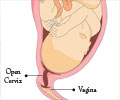Government’s first line of treatment may not be suitable for every woman who undergoes a miscarriage, finds a new study. This study suggests that women should be given more independence in choosing a method that is right for them.

‘UK national guidelines recommend natural delivery as the first option, which resolves 70% of cases - but side effects are not well evaluated and communicated to women. According to this study
All treatment options should be offered to women undergoing a first-trimester miscarriage’





A first-ever comprehensive comparison of all treatment options for miscarriage demonstrates little to no difference in medical effectiveness in resolving an unsuccessful pregnancy between medical and surgical options.Various side effects among treatments were highlighted, including increased bleeding, anxiety, long waiting times and long recovery periods, evidence was not consistent. UK national guidelines recommend natural delivery as the first option, which resolves 70% of cases - but side effects are not well evaluated and communicated to women.
All treatment options should be offered to women undergoing first-trimester miscarriage, argue the University of Warwick and Queen Mary University of London researchers.
Miscarriage affects an estimated 1 in 4 pregnancies.
Women experiencing miscarriage should be offered a choice in the treatment they receive, argues a new study from the University of Warwick that compares all treatment options for the first time.
Advertisement
Researchers from the University of Warwick and the Queen Mary University of London compared for the first time all treatment options available to women experiencing miscarriage, providing comprehensive evidence that all options are similarly effective. They recommend that doctors offer women a choice of treatment options for the miscarriage to enable them to make an informed decision that takes account of potential uncomfortable side effects, long waiting times and extended periods of recovery.
Advertisement
Miscarriage can be a traumatic experience for both parents, resulting in feelings of loss and grief that in some cases can lead to anxiety and depression that adversely affects a couple's ability to resume their fertility. Miscarriage is the most common complication of pregnancy and affects an estimated 1 in 4 pregnancies.
The study looked into the treatment options offered to women who experienced spontaneous loss of pregnancy (miscarriage) before 14 weeks gestation, which included conservative treatment. During a miscarriage, the body will aim to resolve the unsuccessful pregnancy naturally, but this process can be painful with increased bleeding, increased likelihood of hospital admission, reduced quality of treatment and reduced satisfaction. The study showed that conservative treatment could resolve miscarriage in about 70% of cases.
However, surgery and medical treatment with a tablet had similar effectiveness in treating miscarriage as conservative treatment. The surgical options include electric vacuum aspiration, offered by the majority of hospitals in the NHS, which requires a general anesthetic and trip to the operating theatre. Manual vacuum aspiration is not a common service in the NHS yet and requires specialized training by healthcare professionals, but can be performed under local anesthetic and with less waiting time.
National guidelines from NICE recommend conservative treatment as the first line of therapy before offering medical or surgical treatment if the miscarriage is not resolved within two weeks.
Lead author Dr. Bassel Wattar, from Warwick Medical School, said: "Our research has compared all these treatment options and demonstrated that there's not much difference between taking a medical tablet or going through either types of surgery. Arguably, manual vacuum treatment results in better patient experience because women get to go home quicker and get to start their recovery faster. Furthermore, it has cost-saving benefits to the NHS because there's less use of resources.
"What we have to do is provide women with evidence about the benefits and effectiveness of each treatment option and potential side effects so that they can choose what they feel most comfortable with. Some women are more keen on having a quick surgical intervention so that they can resume their lifestyle immediately, some are very keen to avoid surgery and prefer to go with a tablet, and others want to take a more natural approach.
"While conservative management sounds like a natural treatment, it might come with more side effects than if you compare it to a tablet that can finish the process quicker and faster."
The researchers argue that the focus of research in the past has been on the effectiveness of the treatment and few studies have considered other important factors such as post-treatment stress and side effects.
Dr. Wattar adds: "A lot of previous research had not worked with women to understand what factors are of greatest concern to them, specifically the tolerability of each treatment option, time to return to work, satisfaction or pain. These are equally important and need to be reported on in future.
"There is evidence that if we offer all these treatment options to women, then their satisfaction with the treatment is likely to be higher, and we can provide a more efficient service. For example, if you offer surgery under local anesthetic, waiting times for theatre will be less, the use of equipment will be reduced and return to work for the patient will be faster. The overall bill to society and the health system would also be reduced if we offered all treatment options."
Source-Eurekalert














